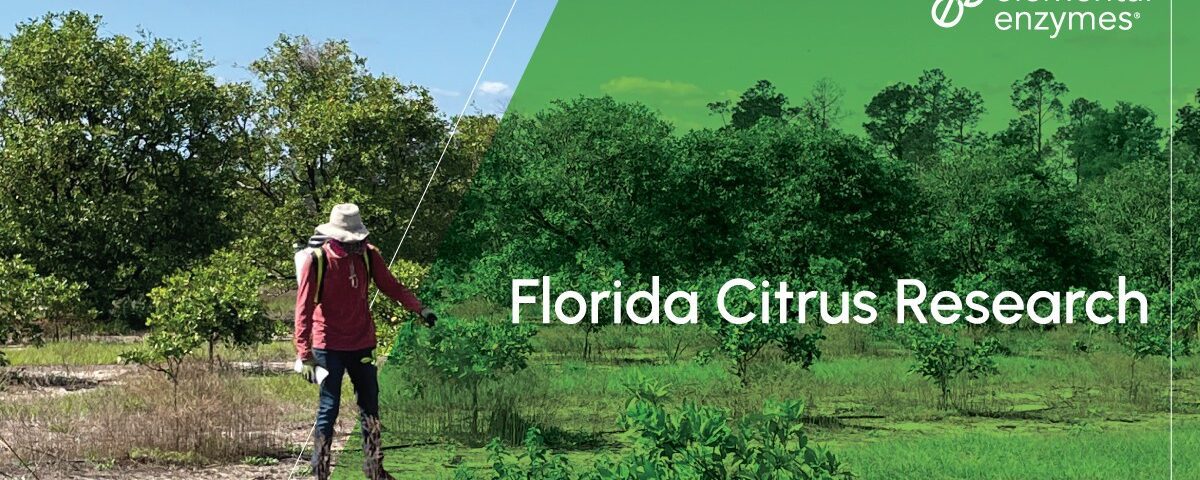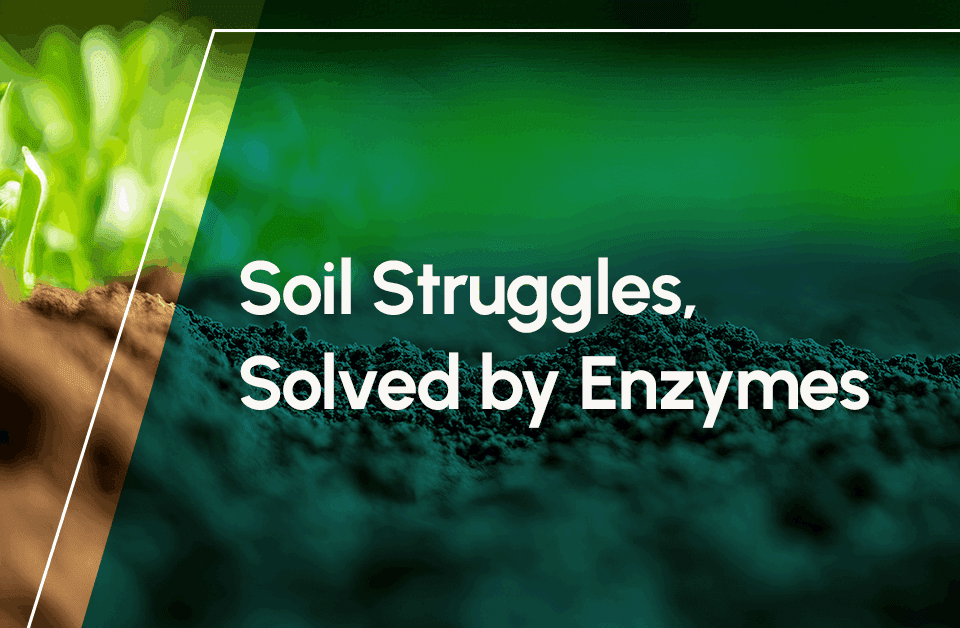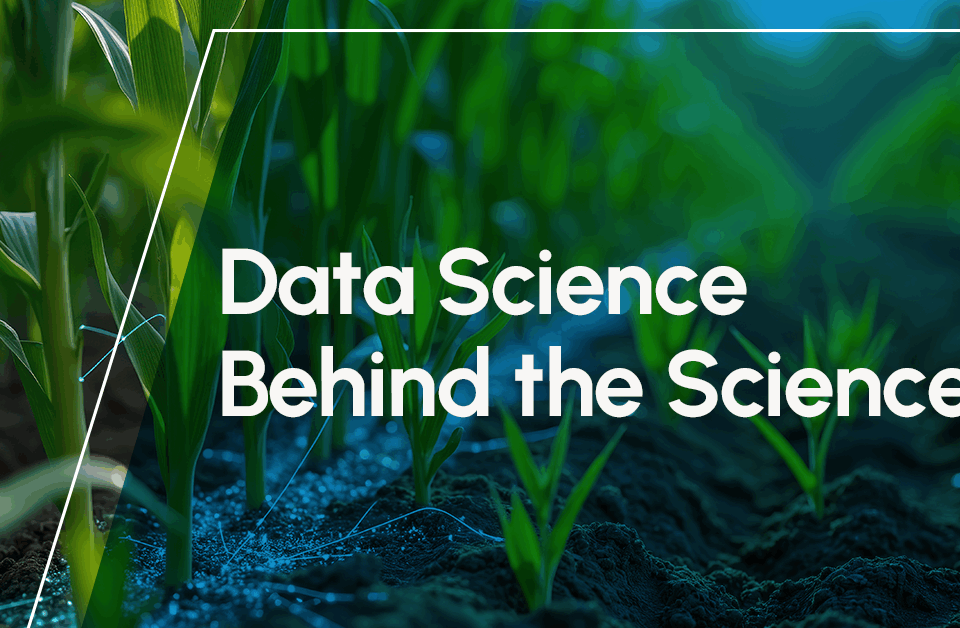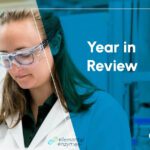
2023: A Year in Review
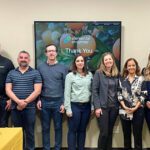
Brazilian officials’ visit helps speed along product registration process
Behind any new Elemental Enzymes technology are the scientists whose dedication and support ultimately make the formulation work for end users. This includes the field researchers whose responsibility it is to balance findings in the lab against on-farm applications for practical use. The Elemental Enzymes field team based in Jacksonville, Florida, is key to the development of technology for the citrus industry.
Led by Annie Simms, the Florida office consists of two full-time field research specialists and five part-time research assistants working together to set up and manage product field trials across the state. Right now the team’s focus is on sweet oranges and tangelos, while also collaborating with a Texas industry partner on grapefruit trials.
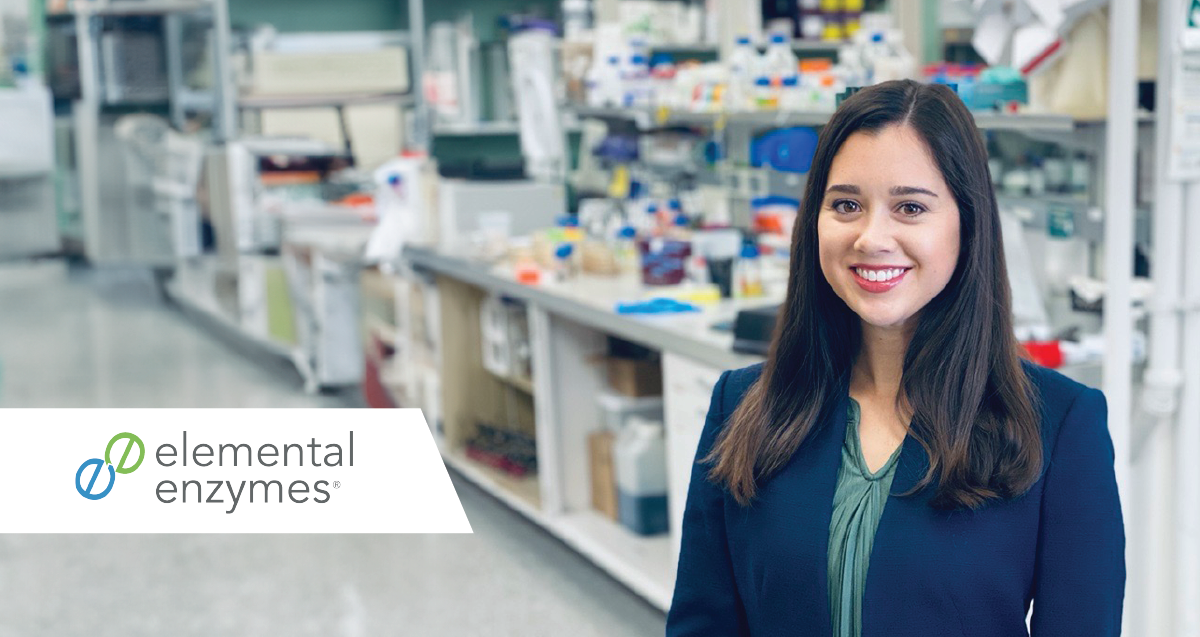
Annie Simms, Florida Site Manager
This team is conducting new field trials with Elemental technologies that could lead to further prevention or mitigation of Citrus Greening losses. In 2023, the team oversaw 25 unique trial sites. Citrus Greening is a globally injurious disease caused by insect-transmitted bacteria that is extremely difficult to overcome without applying environmentally harmful insecticides. Between 2005 and 2023, Florida suffered a nearly 90% reduction in orange yields, which affected the state’s worldwide status as a citrus powerhouse.
Elemental technology “stimulates the plant’s immune system to help it defend itself against Citrus Greening,” Simms explained. “There are also relatively new antibiotics (from other manufacturers) to help trees lower their bacterial load, but one of the challenges of HLB is that trees are constantly being reinfected, and it’s difficult to eradicate bacteria from the tree.”
She likened it to taking antibiotics for strep throat — while the drug might kill the infection, if the person is constantly exposed to the bacteria causing strep throat, they might become reinfected. It’s similar for trees continually exposed to Citrus Greening, and Elemental technology is a critical factor in amplifying their natural resistance and battling infection.
Simms’s team works closely with Elemental’s commercial partners, conducting and reporting on field research. Elemental has also collaborated with the University of Florida on greenhouse work and performed grant work for the Citrus Research and Development Foundation.
The mechanics of it all
The majority of technology tested by the Jacksonville team is initially field-trialed on row crops in the Midwest. Once something has proven effective on row crops, it goes into the R&D pipeline at Elemental’s St. Louis headquarters. If the technology is determined to be of potential value to citrus growers, Simms’s team will begin testing in Florida.
“We don’t own a research farm,” she noted. “We work directly with growers to set up trials to test new products on their farms, or we connect with them through the University of Florida.”
Jacksonville isn’t a citrus center — most growth takes place in the central and southern regions of Florida, meaning team members frequently commute to test sites 2-5 hours away. Simms notes that the grower-partners are excellent partners, regularly communicating with her office regarding crop conditions, stages, and weather events in order to properly schedule their visits and data collection.
With a bachelor’s degree in microbiology and a master’s in food science and technology, Simms’s background is in lab study, having worked for the Centers for Disease Control and Prevention before seeking a job in her native Jacksonville in 2019. Though the position began with lab work, eventually Simms took on more responsibility for field trials and was promoted to field research manager, then to site manager in 2022. Juice analysis and fruit quality is the only lab work now performed in Jacksonville.
The human element
The Jacksonville office has grown from three people in 2016, when Joy Bailey — now Field Research Lead for Latin America — moved there as site manager to begin Elemental’s citrus research program. Simms notes one of the things she appreciates about Elemental is work-life balance.
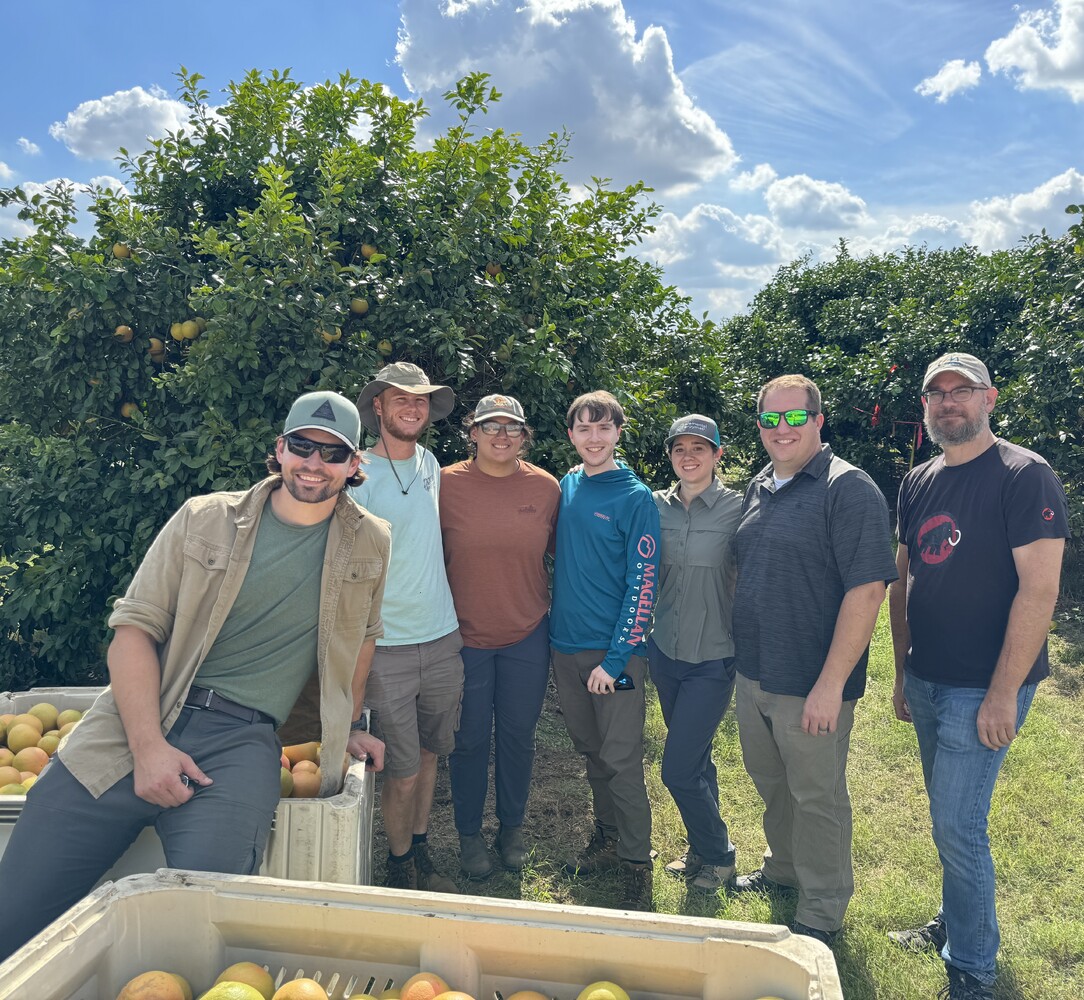
Left to right: Spencer Garneau, Bryce Barrineau, Hayden Garrison, Zachary Jackson, Annie Simms, Adam Keene, and Bret Gygi
Further growth is expected at this site as Elemental focuses on establishing Jacksonville as a site for additional crop research in the Eastern U.S. Right now, they are also hiring for an additional part-time field assistant at this office — but will undoubtedly need even more talented people as they grow!

